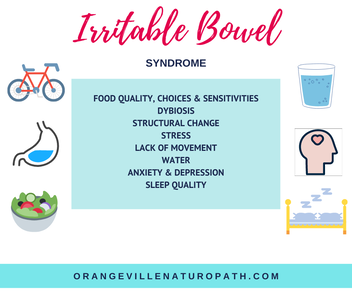Brighter days! So what do you do on a long weekend when there's not a whole lot of options? The lineups at garden centres would indicate that lots of us are taking an interest in sprucing up our outdoor space, and growing our own food. I will humbly admit, I do NOT have a green thumb... but I'm trying... and that's what counts ;) Last weekend I prepared our planters and got the boxes ready to plant seedlings in a couple of weeks. We so loved having fresh veggies every day last summer - I actually can't believe we didn't turn green.
5 Tips for Being Outside for Gardeners, Grass cutters, and Loungers
1. Posture & Stretch
Many of us haven't been overly active for some time, and then went out and dug in the garden for 8 hours or held the weed-wacker last weekend. This type of seasonal overuse (shovelling in the winter) is super common but also needs some attention. Stretch before and after activity, bend your knees, take breaks, know your limits and stop if you notice you are stiffening up. It's also important to maintain flexibility and strength with yoga or resistance training, and regular care with acupuncture, massage, and chiropractic support. I've been doing quite a bit of neck, arm, and back acupuncture the last few weeks... let me know if you'd like to come in for this treatment (it's also great for the tension caused by all the computer work).
2. Bugs
Last night I was out enjoying a warm evening on the deck, when the mosquitoes appeared... I thought "already?! are you f*-ing kidding me?", although it really is a normal occurrence in the spring. Nonetheless, I got some bites. Immediately, I dug out our favourite remedy - Apis Gel by a company called Boiron. It works best if you put it on soon after a bite. Today, I have no itching.
3. Sun
You might be tempted to tan everything, including between your fingers. It's important to get some sunshine for Vitamin D production, but try not to burn. If you do, aloe from a houseplant or from a product (like Nature's Aid gel) works well to heal and soothe the skin quickly. There's also evidence to suggest that higher antioxidant status will protect from burning as easily, so Vitamin C could be helpful but eating lots of vegetables and fruits is also a good idea to get the full spectrum of nutrients, antioxidants and bioflavonoids.
4. Barbecuing
You can easily make your BBQ and warm weather foods more "healthy" by adding veggies, being mindful of your meat sources, and using broccoli or rosemary in your meal or marinades to mitigate effects of the charred meats. Asparagus is in season, and tastes extra delicious on the grill (see recipe below). More info on healthy BBQ here
5. Water
For some reason I've notice a trend of people not drinking as much as they used to. Our bodies are mainly composed of water, which means it's important to replenish. How much? A general recommendation is to divide your body weight in half, that's how many ounces you should aim for (e.g. if you weigh 150 lbs, you need 75 ounces of water). Consider adding a pinch of sea salt to absorb the water into your cells. Sparkling water can contain electrolytes for absorption too (see recipe below).
The pollen is extra brutal at the moment too, so head over to this post if you'd like some suggestions for allergy support, or book in with me to develop your personalized strategy.
Connecting with nature and getting fresh air has dramatic health benefits. I've loved seeing people enjoying our local trails, out walking, or purchasing plants and seeds.
Have a fantastic long weekend,
Dr. Christa
Recipes:
Grilled Asparagus
Grapefruit Thyme Sparkling Water
Book Appointment


 RSS Feed
RSS Feed